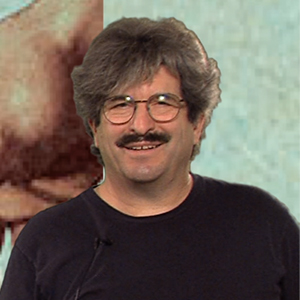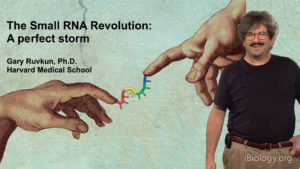Gary Ruvkun is a Professor of Genetics at Harvard Medical School. His lab has been instrumental in identifying the regulation mechanisms of microRNAs, and was the first to show that microRNAs were conserved amongst animals. Ruvkun is a member of the National Academy of Sciences, the Institute of Medicine, and the American Academy of Arts and Sciences. Ruvkun has won numerous awards, including the Albert Lasker Award for Basic Medical Research and the Louisa Horwitz Prize from Columbia University for his work on non-coding RNAs.

Talks with this Speaker
The Small RNA Revolution: A Perfect Storm and Small Non-coding RNAs
Gary Ruvkun talks about the discovery of small non-coding RNAs that regulate mRNA expression and translation, adding an exciting new layer of complexity to the control of gene expression. (Talk recorded in July 2013)

Audience:
- Student
- Researcher
- Educators of H. School / Intro Undergrad
- Educators of Adv. Undergrad / Grad
Duration: 17:00



